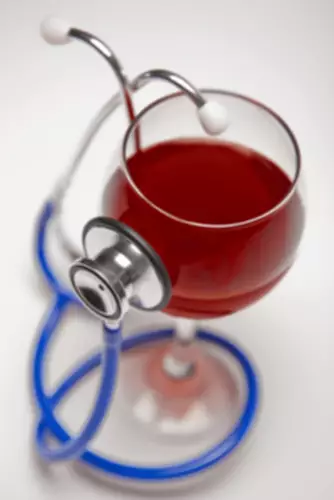It may include rediscovering a work or social role, finding new recreational interests, or developing a new sense of spiritual connection. The important feature is that the interest avert boredom and provide reframing holidays in early recovery rewards that outweigh the desire to return to substance use. Researchers have studied the experiences of many people who have recovered from substance use and identified key features of the recovery process.

Addiction Treatment Options for Drugs and Alcohol
- But cravings don’t last forever, and they tend to lessen in intensity over time.
- As individuals cultivate mental resilience through structured practices, engaging in physical wellness activities that support holistic recovery is equally important.
- A good relapse prevention plan specifies a person’s triggers for drug use, lists several coping skills to deploy, and lists people to call on for immediate support, along with their contact information.
- In early recovery from addiction, your loved one’s well-being means everything to you.
- Learning what one’s triggers are and acquiring an array of techniques for dealing with them should be essential components of any recovery program.
By developing healthy habits and routines, individuals can avoid triggers that may lead to relapse. This structure provides stability and purpose, helping individuals stay focused on their recovery goals. By incorporating these essential habits into your daily routine, you can build a solid foundation for your recovery. Remember that seeking professional guidance and support is a critical component of your journey, ensuring that you receive the personalized care and strategies needed to overcome addiction. To navigate this period successfully, it’s essential to establish healthy habits that support ongoing sobriety and personal growth.

Data analysis
Turning to another activity—listening to music, going for a walk—when an urge hits can maintain recovery. Enter your phone number and one of our treatment professionals will reach out to you as soon as possible. 73% of Americans rank their finances as the no. 1 stress in life, according to New Capital one creditwise survey. Managing legal issues during recovery requires securing competent legal representation.
Early Recovery Challenges and How These Habits Help

For example, if you were addicted to alcohol, your body might react with trembling hands, sweating, and even confusion as it adjusts to not having alcohol anymore. For someone recovering from opioids like painkillers, they might experience flu-like symptoms, muscle aches, and trouble sleeping. Stimulants like cocaine or methamphetamine can cause exhaustion, depression, and strong cravings during detox.
In addition, learning relaxation techniques can help those in recovery by reducing the tension that is often an immediate trigger of relapse, become comfortable with uncomfortable feelings, and release negative feelings that can trigger relapse. Recovery from addiction is not only possible, it is the rule, rather than the exception. S. National Survey on Drug Use and Health, more than 75 percent of people addicted to alcohol or drugs recover—their condition improves and substance use no longer dominates their life. It is often a long and bumpy path, and relapse is nearly inevitable—but that doesn’t spell the end of recovery.
Exercise, listening to music, getting sufficient rest—all can have a role in taking the focus off cravings. No matter which pathway of recovery a person chooses, a common process of change underlies them all. The well-researched science of behavior change establishes that addictive behavior change, like any behavior change, is a process that starts long before there’s any visible shift in activity. Only 1.0 percent of people receive substance abuse treatment as an inpatient or outpatient at a specialty facility.
Why are the Initial Phases of Healing Critical in Addiction Recovery?
- When there is a lack of structure or unoccupied time, theyreturn to their previously established positive supports.
- Understanding these initial struggles is key to appreciating the full scope of recovery’s journey.
- Results of the current study indicate that participants are most frequentlyengaging in rest, which may include sleep, relaxation, and other down-timeactivities (31.0% of the time of the most busy day and 36.6% of the time on theleast busy day).
- Establishing a structured approach to mental health can greatly enhance one’s ability to navigate these turbulent times effectively.
- Techniques such as mindfulness, therapy, and community support play pivotal roles in anchoring them amidst the chaos.
The three stages of relapse are emotional relapse, mental relapse, and physical relapse. Emotional relapse involves emotions and behaviors that set individuals https://ecosoberhouse.com/ up for relapse. Mental relapse is when individuals have a war going on inside their minds, with part of them wanting to use it and part of them not.
Ways to Overcome Common Challenges in Early Recovery
During the initial six months of recovery, it is important to know what to expect. Maintaining sobriety during early recovery can feel precarious, but with proper planning, support and self-awareness, it can be a safe and successful process. Cultivate a gratitude practice to shift your focus from what you’ve lost due to addiction to what you’ve gained in recovery. Regularly acknowledging the positive aspects of your life can boost your motivation and resilience. Keeping an occupied mind and a good emotional balance are pillars of long-term sobriety.
How can cognitive therapy help in preventing relapse?
Another one of the most important ways to support recovery is to understand that multiple relapses over a number of years are typically part of the process. They are not occasion for blame or despair but for encouraging resumption of recovery. Families can develop awareness of a loved one’s emotional, environmental, and social triggers of substance use and manage those. Because of the way addiction changes the brain, one of the best ways to help when loving someone with an addiction is to provide frequent feedback and encouragement, planning small immediate rewards every day for any positive changes. Studies show that families that participate in treatment programs increase the likelihood of a loved one staying in treatment and maintaining gains. Recovery from addiction is not a linear process, and increasingly, relapse is seen as an opportunity for learning.
Early Recovery Challenges
One powerful self-reflection technique is maintaining a recovery journal. Documenting daily experiences, thoughts, and feelings provides valuable insights into personal growth and areas needing attention. Families can transform into cheerleaders and integral parts of the recovery process by attending family therapy sessions and learning how to provide emotional and practical support. Understanding triggers and celebrating milestones further solidifies their support. Regular check-ins are essential touchpoints that reinforce accountability and support in the early recovery journey. Imagine the daily practice of journaling as a lighthouse guiding you through the fog of uncertainty.